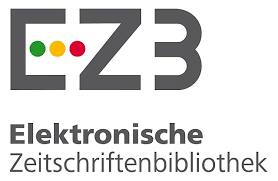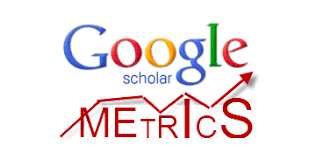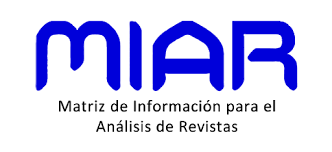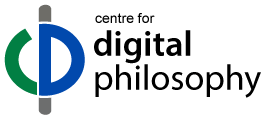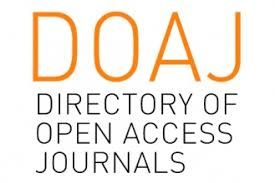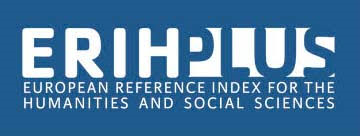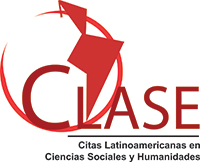Moore contra os céticos
DOI:
https://doi.org/10.15448/1984-6746.2021.1.41521Palavras-chave:
Ónus da prova, Debates, G. E. Moore, Conhecimento, CeticismoResumo
A “Prova de um mundo externo” de Moore e suas “Quatro formas de ceticismo” há muito intrigam os comentaristas. Como são essas respostas adequadas aos céticos? Até que ponto a chamada prova de um mundo externo é pertinente para o desafio do ceticismo? A noção de ônus da prova relativizada é introduzida: este é um ônus da prova vis-à-vis o oponente que se assume ao tentar convencer alguém de algo. O ônus da prova relativizado é tornar explícito (no tópico do discurso racional) o truísmo de que se você argumentar com alguém com a intenção de tentar convencer alguém de algo, e se você não conseguir, você não encontrou sua própria conversação meta. Assumir que Moore está implicitamente contando com a noção de fardos relativizados da prova ilumina sua abordagem nesses artigos.
Downloads
Referências
AIKIN, Scott. Epistemology and the regress problem. London: Routledge, 2011. DOI: https://doi.org/10.4324/9780203833247
AUSTIN, J. L. Sense and sensibilia. Oxford: Oxford University Press, 1962.
AZZOUNI, Jody. Attributing knowledge: What it means to know something. Oxford: Oxford University Press, 2020. DOI: https://doi.org/10.1093/oso/9780197508817.001.0001
AZZOUNI, Jody. Challenging knowledge: How we sometimes don’t know what we think we know. Forthcoming.
BALDWIN, Thomas. G. E. Moore. London: Routledge, 1992.
BURNYEAT, M. F. Examples in epistemology: Socrates, Theaetetus and G. E. Moore. Philosophy, Cambridge, v. 52, n. 202, p. 381-398, 1977. DOI: https://doi.org/10.1017/S0031819100028886
CAVELL, Stanley. The claim of reason. Oxford: Oxford University Press, 1979.
CLARKE, Thompson. The legacy of skepticism. The Journal of Philosophy, New York, v. 69, n. 20, p. 754- 769, 1972. DOI: https://doi.org/10.2307/2024672
COLIVA, Annalisa. 2007. The paradox of Moore’s proof of an external world, The Philosophical Quarterly, St. Andrews, v. 58, n. 231, p. 234-243, 2007. DOI: https://doi.org/10.1111/j.1467-9213.2007.513.x
DEROSE, Keith. The case for contextualism: Knowledge, skepticism, and context. Oxford: Oxford University Press, 2009. v. 1. DOI: https://doi.org/10.1093/acprof:oso/9780199564460.001.0001
KLEIN, Peter. How a Pyrrhonian skeptic might respond to academic skepticism. In: LOPER, Stephen (ed.) The skeptics: Contemporary essays. Aldershot: Ashgate, 2003.
LYCAN, William G. Moore against the new skeptics. Philosophical Studies, v. 103, n. 1, p. 35-53, 2001. DOI: https://doi.org/10.1023/A:1010328721653
MALCOLM, Norman. Defending common sense. The Philosophical Review, Ithaca, NY, v. 58, n. 3, p. 208-220, 1949. DOI: https://doi.org/10.2307/2181851
MALCOLM, Norman. Moore and ordinary language. In: SCHILPP, P. A. (ed.). The philosophy of G.E. Moore. 2. ed. New York: Tudor Publishing Company, 1952.
MOORE, George Edward. Hume’s philosophy. In: MOORE, George Edward. Philosophical studies. London: Routledge & Kegan Paul, 1922.
MOORE, George Edward. Some judgments of perception. In: Proceedings of the Aristotelian Society. London: The Aristotelian Society, [in between 1918 and 1919].
MOORE, George Edward. A defense of common sense. In: MOORE, George Edward. Philosophical papers. New York: Collier Books, 1962. (1925).
MOORE, George Edward. Proof of the external world. In: MOORE, George Edward. Philosophical papers. New York: Collier Books, 1962. (1939).
MOORE, George Edward. An autobiography. In: SCHILPP, P. A. (ed.). The philosophy of G.E. Moore. 2. ed. New York: Tudor Publishing Company, 1952. (1942).
MOORE, George Edward. Four forms of skepticism. In: MOORE, George Edward. Philosophical Papers. New York: Collier Books, 1962. (1959a).
MOORE, George Edward. 1959b. Certainty. In: MOORE, George Edward. Philosophical Papers. New York: Collier Books, 1962. (1959b).
PRYOR, James. The skeptic and the dogmatist. Noûs, [S. I.], v. 34, n. 4, p. 517-549, 2000. DOI: https://doi.org/10.1111/0029-4624.00277
PRYOR, James. What’s wrong with Moore’s argument? Philosophical Issues, [S. I.], v. 14, p. 349-371, 2004. DOI: https://doi.org/10.1111/j.1533-6077.2004.00034.x
QUINE, W.V.O. Word and object. Cambridge, MA: The MIT Press, 1960.
QUINE, W.V.O. Reply to Stroud. In: FRENCH, Peter A.; UEHLING, Theodore E.; WETTSTEIN, Howard K. Midwest studies in philosophy, [S. I.], n. 6, p. 473-475, 1981. DOI: https://doi.org/10.1111/j.1475-4975.1981.tb00452.x
RONSON, Jon. The psychopath test: A journey through the madness industry. New York: Penguin Group Inc., 2011.
RUSSELL, Bertrand. Analysis of matter. London: Allen & Unwin, 1927a.
RUSSELL, Bertrand. An outline of philosophy. London: Allen & Unwin, 1927b.
STROUD, Barry. The significance of philosophical scepticism. Oxford: Oxford University Press, 1984. DOI: https://doi.org/10.1093/0198247613.001.0001
WILLIAMS, Bernard. Descartes: The project of pure enquiry. London: Routledge, 1978.
WILLIAMS, Michael. Unnatural doubts: Epistemological realism and the basis of scepticism. Princeton: Princeton University Press, 1996.
WILLIAMS, Michael. Problems of knowledge: A critical introduction to epistemology. Oxford: Oxford University Press, 2001.
WITTGENSTEIN, L. On certainty. Edited by G.E.M. Anscombe and G.H. von Wright; translated by Denis Paul and G.E.M. Anscombe. NewYork: Harper and Row, Publishers, 1969.
WRIGHT, Crispen. Facts and certainty. Proceedings of the British Academy. London: British Academy, 1985. p. 429-472.
Downloads
Publicado
Como Citar
Edição
Seção
Licença
Copyright (c) 2021 Veritas (Porto Alegre)

Este trabalho está licenciado sob uma licença Creative Commons Attribution 4.0 International License.
Direitos Autorais
A submissão de originais para a Revista Veritas implica na transferência, pelos autores, dos direitos de publicação. Os direitos autorais para os artigos publicados nesta revista são do autor, com direitos da revista sobre a primeira publicação. Os autores somente poderão utilizar os mesmos resultados em outras publicações indicando claramente a Revista Veritas como o meio da publicação original.
Licença Creative Commons
Exceto onde especificado diferentemente, aplicam-se à matéria publicada neste periódico os termos de uma licença Creative Commons Atribuição 4.0 Internacional, que permite o uso irrestrito, a distribuição e a reprodução em qualquer meio desde que a publicação original seja corretamente citada. Copyright: © 2006-2020 EDIPUCRS





